Singer, songwriter, musician and a voice-over actor, Athalie spent her early years in Thailand’s northeast, eating sticky rice and speaking the local dialect.
Now fluent in three languages, this multi-talented lady heads two bands – Jazziam and the soon-tobe- launched Chilla Nova – who can be seen at several popular Bangkok venues.
Now fluent in three languages, this multi-talented lady heads two bands – Jazziam and the soon-tobe- launched Chilla Nova – who can be seen at several popular Bangkok venues.
Name: Athalie de Koning.
Nickname: Ath (pronounced ‘At’ like the @ sign)
Education: Bachelor of Education in Music, Master of Education in Arts (specialization in Voice and Interdisciplinary Improvisation) from Utrecht Conservatory, the Netherlands.
Family background: I am the fifth of six children. I have two older sisters, two older brothers, and one younger brother. Growing up, our family used to sing and harmonise together all the time, earning us the nickname “the Von Trapp Family.”
Where do you live? Sukhumvit 101/1, a buzzing part of town that has street food available at all hours of the day (or night). When I first moved there seven years ago, it was very rare to see any foreigners in the area. However, with the new True Digital Park that just opened at 101, there has been an influx of non-Thai office workers and entrepreneurs. I’m still getting used to all the changes, but it is very convenient to have a shopping mall and my favourite gym nearby.
How long in Thailand? What brought you here?
When I was just a few months old, my parents brought me to the north-eastern region of Thailand, Isan, where they worked with Hmong refugees in Loei province. I spent the first three and a half years of my life eating sticky rice with mango and babbling in Isan. After that, we moved back and forth between the Netherlands, England, Malaysia, and Thailand.
I can’t say exactly how many years I have been in Thailand due to all the moving around, but I usually say, “most recently, nine years.” My Asian-American husband and I moved back to Thailand in 2010. His mum still lives here, as well as my parents and my younger brother.
What’s keeping you here?
My husband and I always joke that Thailand is the only country that will have us both. Although we say it in jest, there is certainly a grain of truth in that statement. Both of us had trouble getting visas in each other’s birth countries – the Netherlands and America – but here in Thailand, marriage still carries some legal weight. Because of my husband’s Thai passport, the yearly visa application process is quite smooth. Time-consuming, yes, but I’ve learned not to look at the clock too often in Thailand.
So you can speak Thai fluently?
Thai is such an intricate language, I feel like I’ll never speak it fluently. For every situation, depending on context, hierarchy, or status, there’s a specific word. I’m about 80% fluent now, but certain formal fields such as philosophy or religion are still difficult for me to follow.
Even though I lived here as a child, I didn’t grow up speaking Thai. My siblings and I went to international schools, where all the students were encouraged to speak only English. As a result, English is my first language, Dutch my second, and Thai my third.
When I moved back to Bangkok nine years ago, I took an intensive course of three months, six hours a day. That’s where I learned the basics, but most of my Thai speaking skills have come from interaction with fellow musicians. I love listening to their banter during rehearsals and I try to pick up at least a few new words every week. Only polite words, of course!
Name: Athalie de Koning.
Nickname: Ath (pronounced ‘At’ like the @ sign)
Education: Bachelor of Education in Music, Master of Education in Arts (specialization in Voice and Interdisciplinary Improvisation) from Utrecht Conservatory, the Netherlands.
Family background: I am the fifth of six children. I have two older sisters, two older brothers, and one younger brother. Growing up, our family used to sing and harmonise together all the time, earning us the nickname “the Von Trapp Family.”
Where do you live? Sukhumvit 101/1, a buzzing part of town that has street food available at all hours of the day (or night). When I first moved there seven years ago, it was very rare to see any foreigners in the area. However, with the new True Digital Park that just opened at 101, there has been an influx of non-Thai office workers and entrepreneurs. I’m still getting used to all the changes, but it is very convenient to have a shopping mall and my favourite gym nearby.
How long in Thailand? What brought you here?
When I was just a few months old, my parents brought me to the north-eastern region of Thailand, Isan, where they worked with Hmong refugees in Loei province. I spent the first three and a half years of my life eating sticky rice with mango and babbling in Isan. After that, we moved back and forth between the Netherlands, England, Malaysia, and Thailand.
I can’t say exactly how many years I have been in Thailand due to all the moving around, but I usually say, “most recently, nine years.” My Asian-American husband and I moved back to Thailand in 2010. His mum still lives here, as well as my parents and my younger brother.
What’s keeping you here?
My husband and I always joke that Thailand is the only country that will have us both. Although we say it in jest, there is certainly a grain of truth in that statement. Both of us had trouble getting visas in each other’s birth countries – the Netherlands and America – but here in Thailand, marriage still carries some legal weight. Because of my husband’s Thai passport, the yearly visa application process is quite smooth. Time-consuming, yes, but I’ve learned not to look at the clock too often in Thailand.
So you can speak Thai fluently?
Thai is such an intricate language, I feel like I’ll never speak it fluently. For every situation, depending on context, hierarchy, or status, there’s a specific word. I’m about 80% fluent now, but certain formal fields such as philosophy or religion are still difficult for me to follow.
Even though I lived here as a child, I didn’t grow up speaking Thai. My siblings and I went to international schools, where all the students were encouraged to speak only English. As a result, English is my first language, Dutch my second, and Thai my third.
When I moved back to Bangkok nine years ago, I took an intensive course of three months, six hours a day. That’s where I learned the basics, but most of my Thai speaking skills have come from interaction with fellow musicians. I love listening to their banter during rehearsals and I try to pick up at least a few new words every week. Only polite words, of course!
Can you write Thai?
I can read Thai, but writing is difficult for me. I usually use a dictation app on my phone, so if I say the words clearly enough, it writes them out in Thai for me. I love technology!
Your profession now (and in the past)?
I am a singer and a voice-over actor. I’ve always had a passion for Voice, but I never craved the spotlight or the big
stage. I loved studio work, composing, choir conducting, and teaching. When I went to college, I decided to study
music education at the Utrecht Conservatory instead of performance because I felt that the message of music was more important than the superstar myth surrounding it.
The mainstream music industry is so focused on “sellability” and mass consumption, it has lost touch with the artistic side of things. Many top producers use formulas to determine the catchiest chord progressions and lyrics for their music. This approach turns music into a marketable product, but takes away thought-provoking, critical role that artists should play. Music education in all its different forms is a great way to remind people why they make music. I love inviting people to explore and experiment with their voices.
However, the more I specialized in education, the more I found that I was missing my own creative outlet, my own space to grow and expand all facets of my voice. I knew that I needed to write and perform my own songs in order to honour the creative process that I had theoretically analysed all these years. Yet, I still didn’t feel called to be on stage, I didn’t want to draw attention to myself.
To me, music is about expression and connection, not about fame or adoration. Joni Mitchell once said (paraphrasing Rilke): “Fame is a series of misunderstandings surrounding a name.” I started my band, Jazziam, in 2012 with the hope of playing a lot of old-school jazz and releasing an album. I never thought about “going big,” I just wanted to make a living and keep creating. Little did I realise that I would end up performing for thousands of people, learning so much about stage presence, artistic communication, and that every performance is educational to both myself, the band, and the audience!
I’ve discovered that there is nothing wrong with ‘owning the stage,’ because a strong performance does not equal an ego-trip – it’s a team effort. This is why music keeps calling me again and again – there is always something new to learn.
I can read Thai, but writing is difficult for me. I usually use a dictation app on my phone, so if I say the words clearly enough, it writes them out in Thai for me. I love technology!
Your profession now (and in the past)?
I am a singer and a voice-over actor. I’ve always had a passion for Voice, but I never craved the spotlight or the big
stage. I loved studio work, composing, choir conducting, and teaching. When I went to college, I decided to study
music education at the Utrecht Conservatory instead of performance because I felt that the message of music was more important than the superstar myth surrounding it.
The mainstream music industry is so focused on “sellability” and mass consumption, it has lost touch with the artistic side of things. Many top producers use formulas to determine the catchiest chord progressions and lyrics for their music. This approach turns music into a marketable product, but takes away thought-provoking, critical role that artists should play. Music education in all its different forms is a great way to remind people why they make music. I love inviting people to explore and experiment with their voices.
However, the more I specialized in education, the more I found that I was missing my own creative outlet, my own space to grow and expand all facets of my voice. I knew that I needed to write and perform my own songs in order to honour the creative process that I had theoretically analysed all these years. Yet, I still didn’t feel called to be on stage, I didn’t want to draw attention to myself.
To me, music is about expression and connection, not about fame or adoration. Joni Mitchell once said (paraphrasing Rilke): “Fame is a series of misunderstandings surrounding a name.” I started my band, Jazziam, in 2012 with the hope of playing a lot of old-school jazz and releasing an album. I never thought about “going big,” I just wanted to make a living and keep creating. Little did I realise that I would end up performing for thousands of people, learning so much about stage presence, artistic communication, and that every performance is educational to both myself, the band, and the audience!
I’ve discovered that there is nothing wrong with ‘owning the stage,’ because a strong performance does not equal an ego-trip – it’s a team effort. This is why music keeps calling me again and again – there is always something new to learn.
| Tell us about your band projects: Right now, I manage and sing with two of my own bands, as well as working as a soloist with other ensembles occasionally. My first band, Jazziam, specializes in old-fashioned jazz from the 20s-50s. We have four cool and dependable band members (five including me). Our strength as a band is the ability to truly be in the moment whenever we are on stage – we have fun, we laugh, we feel every emotion of the music and engage with our audience. All of the band members are creative entrepreneurs, running other projects next to their weekly gigs. Pang on saxophone, Golf on piano, Jade on bass, and Nu on drums. |
I love working with Thai musicians because they understand the importance of team work and the joy of interaction. If I have to choose between a technically perfect solo or a musician with a true jazz feel, I will choose feeling every time. There is no room for ego in a collaborative performance. Especially in jazz music, raw emotion and camaraderie are such important qualities.
Officially launching with a special galaxy-themed concert on August 31st, my other band Chilla Nova grew out of a spontaneous collaboration with pianist and steel drum player Teerapoj “Bump” Plitakul. After playing with Jazziam for nearly seven years, I felt the need to try something new and happened to cross creative paths with Bump.
He thought it would be great to introduce the cool sounds of steel drum to Thailand and thus, Chilla Nova was born. Bump is a professor at Mahidol university, as is our guitarist Nattapong “Pom” Kaewsaichoo. We are currently auditioning for a percussionist to join us as well.
In what languages can you sing?
I love singing in different languages and am always trying to add new songs from across the world. Right now, we have songs in English, French, Spanish, Thai, and Dutch. This year, I plan to learn some Portuguese songs with Chilla Nova.
Can you play any instruments?
Yes, a little bit of everything. I play piano well enough to accompany other singers, as well as flute and melodica. For other instruments such as guitar and bass, I’ve learned the basics in order to compose songs and then ask other people to play.
Write music?
Most of my songs are old-fashioned jazz tunes with puns and playful melodies. I have also written pop songs in commission for graduations and small theatre shows. In 2016, we released an album with Jazziam called “Close,” full of original tunes.
Making an album was a fascinating – and at times, gruelling – experience. We didn’t work with a producer and we played everything live in the studio, without autotune or pitching. We were able to finance the album through our
generous supporters worldwide. “Close” was never available online, as it was a concept album that went back to the roots
of jazz and had a limited-edition release of only 300 CDs. Our CD went to Jazziam fans across the world, including
Paris, Amsterdam, Edinburgh, New York, Seoul, and of course Bangkok.
Moving forward, I am continuing to write songs in different styles, and I hope to release them as singles in the coming years. I am still debating whether to self-release everything or to collaborate with a producer.
Where can we see you perform?
Currently, I am at Flamenco every Tuesday from 8pm - 10pm (EM Quartier, 9th Floor Helix Building), St. Regis every Thursday 8pm - 11pm, and Sheraton Grande Sukhumvit for the jazzy brunch every other Sunday from 12 noon - 3pm.
Since we play mostly for special events, our schedule changes regularly. You can find the latest updates by liking our pages @ jazziamband and @chillanovaband on Facebook.
Officially launching with a special galaxy-themed concert on August 31st, my other band Chilla Nova grew out of a spontaneous collaboration with pianist and steel drum player Teerapoj “Bump” Plitakul. After playing with Jazziam for nearly seven years, I felt the need to try something new and happened to cross creative paths with Bump.
He thought it would be great to introduce the cool sounds of steel drum to Thailand and thus, Chilla Nova was born. Bump is a professor at Mahidol university, as is our guitarist Nattapong “Pom” Kaewsaichoo. We are currently auditioning for a percussionist to join us as well.
In what languages can you sing?
I love singing in different languages and am always trying to add new songs from across the world. Right now, we have songs in English, French, Spanish, Thai, and Dutch. This year, I plan to learn some Portuguese songs with Chilla Nova.
Can you play any instruments?
Yes, a little bit of everything. I play piano well enough to accompany other singers, as well as flute and melodica. For other instruments such as guitar and bass, I’ve learned the basics in order to compose songs and then ask other people to play.
Write music?
Most of my songs are old-fashioned jazz tunes with puns and playful melodies. I have also written pop songs in commission for graduations and small theatre shows. In 2016, we released an album with Jazziam called “Close,” full of original tunes.
Making an album was a fascinating – and at times, gruelling – experience. We didn’t work with a producer and we played everything live in the studio, without autotune or pitching. We were able to finance the album through our
generous supporters worldwide. “Close” was never available online, as it was a concept album that went back to the roots
of jazz and had a limited-edition release of only 300 CDs. Our CD went to Jazziam fans across the world, including
Paris, Amsterdam, Edinburgh, New York, Seoul, and of course Bangkok.
Moving forward, I am continuing to write songs in different styles, and I hope to release them as singles in the coming years. I am still debating whether to self-release everything or to collaborate with a producer.
Where can we see you perform?
Currently, I am at Flamenco every Tuesday from 8pm - 10pm (EM Quartier, 9th Floor Helix Building), St. Regis every Thursday 8pm - 11pm, and Sheraton Grande Sukhumvit for the jazzy brunch every other Sunday from 12 noon - 3pm.
Since we play mostly for special events, our schedule changes regularly. You can find the latest updates by liking our pages @ jazziamband and @chillanovaband on Facebook.
| Have you performed for anybody famous? The most important thing when playing for famous people is discretion. That’s why I don’t drop names or divulge anything about our VIP events. Sorry, no hot gossip here! One special performance that I can mention because it was a public concert, is the time that I sang for HRH Princess Sirindhorn. Singing for her was a dream come true, as I greatly admire her work. I have voiced documentaries about HRH Queen Sirikit and Princess Sirindhorn, so I learned about all the good they have done for the tribes of Thailand. The documentaries aired on Thai television, as well as Thai Airways inflight entertainment. What was your worst moment as a singer? Several years ago, I had a serious health incident that resulted in fainting and hitting my head very hard on the bathroom floor. I had a concussion and suffered memory loss for a while, as well as severe neck and back pain. Even though everybody told me to take it easy, I was back on stage within several days, refusing to properly address my traumatic experience. Because my brain was quite jumbled, I had ‘blackout’ moments on stage, where I simply could not remember songs that I had been singing for years! This was a huge blow to my confidence, and from then on, I felt like I could not trust my own mind. I was in constant pain for nearly four years, until last year, when I finally went through intense physical therapy to see if I could truly heal. |
I am so happy to say that I have now been mostly pain-free for six months, and I finally feel like my old self again. I still do physical exercises daily to keep the pain at bay.
One big takeaway from this life-changing experience is that you don’t have to be perfect on stage. I used to think “the show must go on,” and while that is true to some degree, there is nothing wrong with getting personal with your audience.
My performances have become a lot more intimate and ‘real’ now that I acknowledge my feelings in the moment, both good and bad. Anything you go through off stage can be used to express raw emotion on stage.
What kind of music do you like to sing?
I absolutely adore old-fashioned jazz from the 20s-50s, those classic tunes really make my heart sing.
Who are your musical inspirations /favourite singer?
Ella Fitzgerald for her joie de vivre and improvisational scatting. Nina Simone for her unique combination of melancholy and humour. Tony Bennett for his lyrical interpretation. Radiohead for their layering of sound and reinvention. Cole Porter for his puns! Leonard Cohen for his poignant lyrics, Leonard Bernstein for his innovative educational work. Gustav Mahler for his romantic horns and Alma Mahler for her unrecognized talent. Bach for his choral works and orderly composition.
One big takeaway from this life-changing experience is that you don’t have to be perfect on stage. I used to think “the show must go on,” and while that is true to some degree, there is nothing wrong with getting personal with your audience.
My performances have become a lot more intimate and ‘real’ now that I acknowledge my feelings in the moment, both good and bad. Anything you go through off stage can be used to express raw emotion on stage.
What kind of music do you like to sing?
I absolutely adore old-fashioned jazz from the 20s-50s, those classic tunes really make my heart sing.
Who are your musical inspirations /favourite singer?
Ella Fitzgerald for her joie de vivre and improvisational scatting. Nina Simone for her unique combination of melancholy and humour. Tony Bennett for his lyrical interpretation. Radiohead for their layering of sound and reinvention. Cole Porter for his puns! Leonard Cohen for his poignant lyrics, Leonard Bernstein for his innovative educational work. Gustav Mahler for his romantic horns and Alma Mahler for her unrecognized talent. Bach for his choral works and orderly composition.

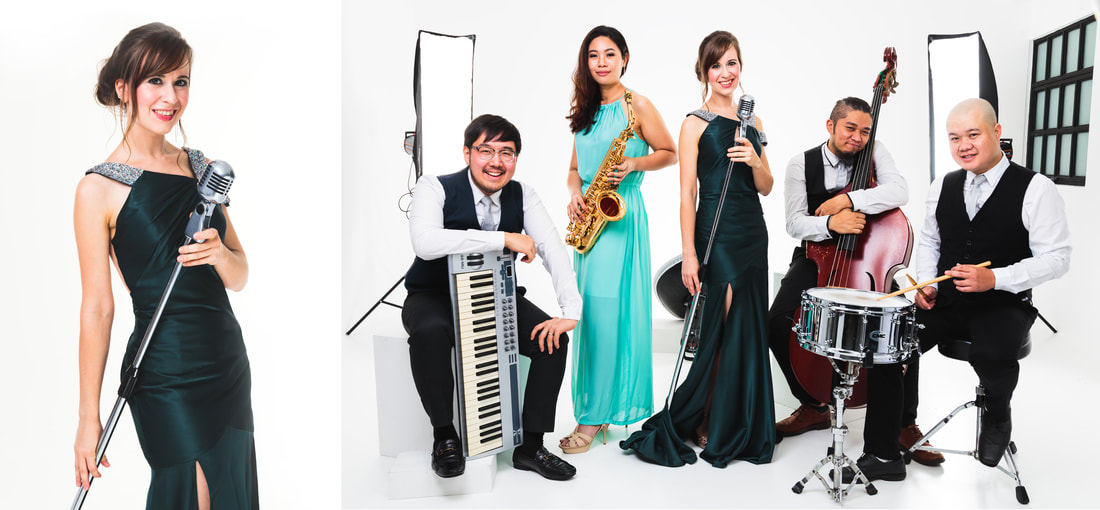
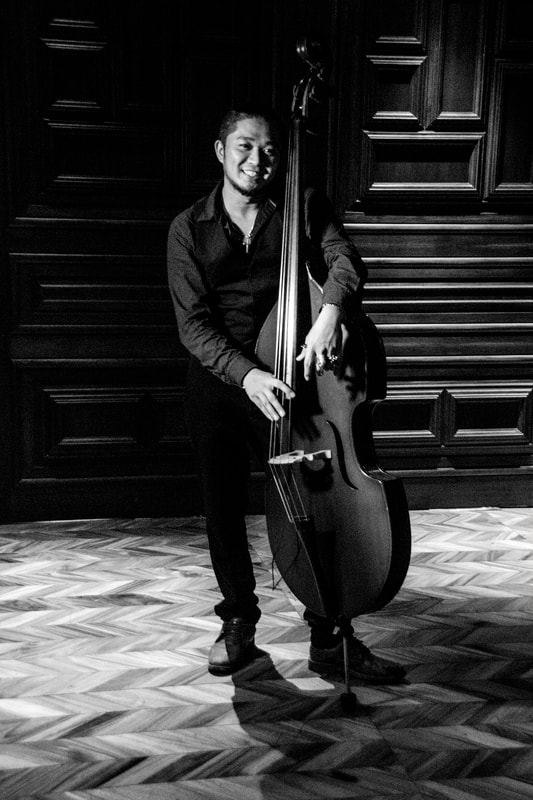
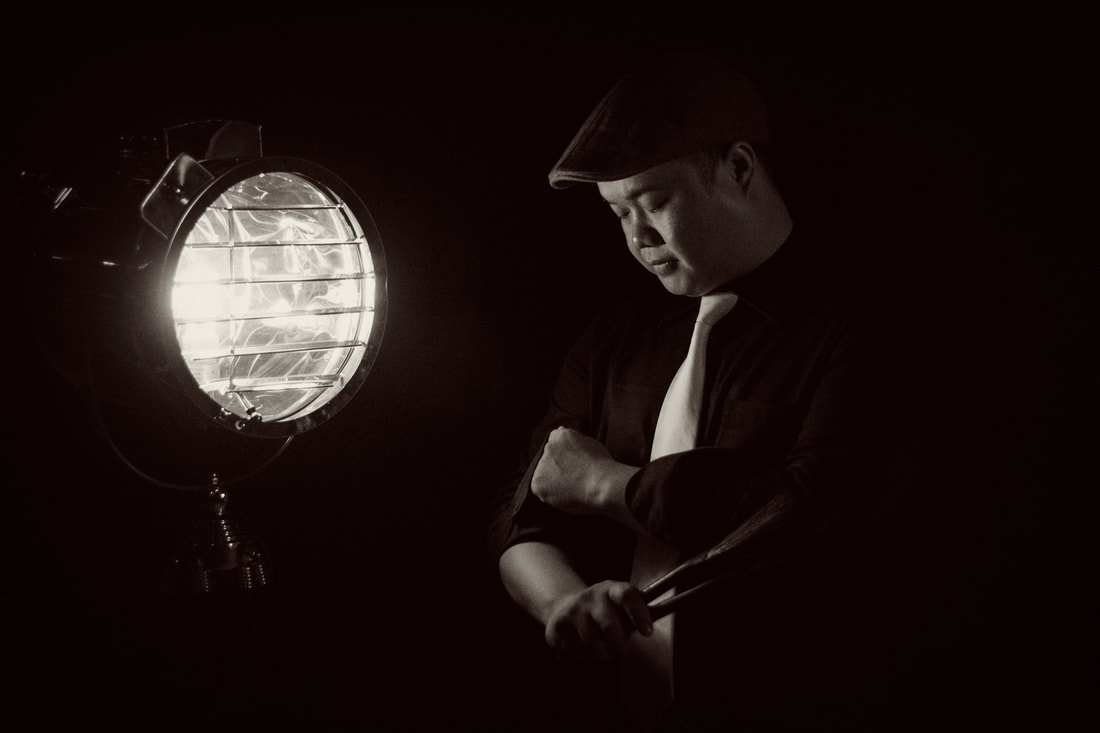
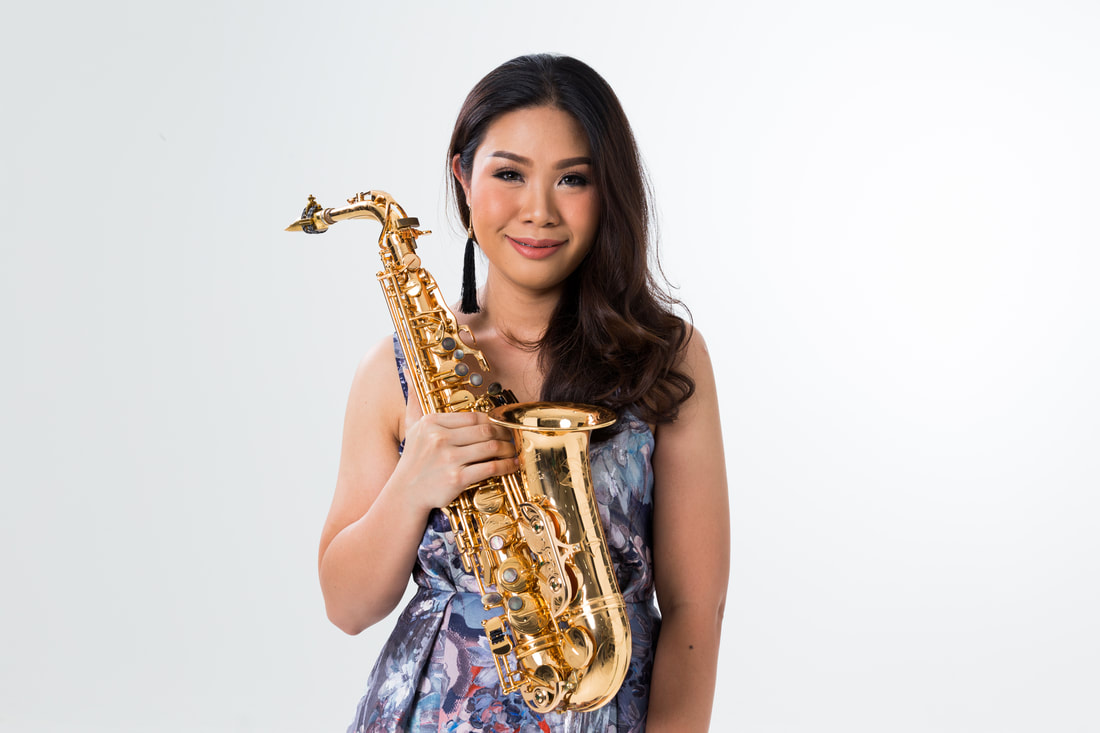
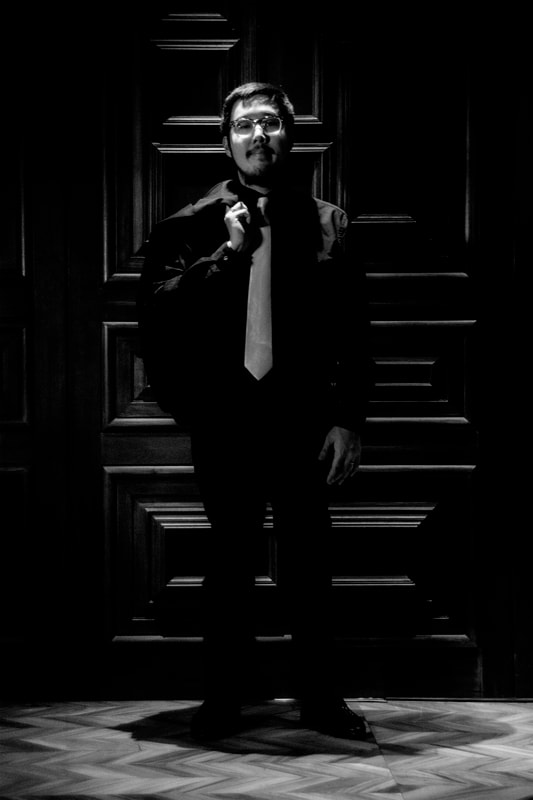
 RSS Feed
RSS Feed
















